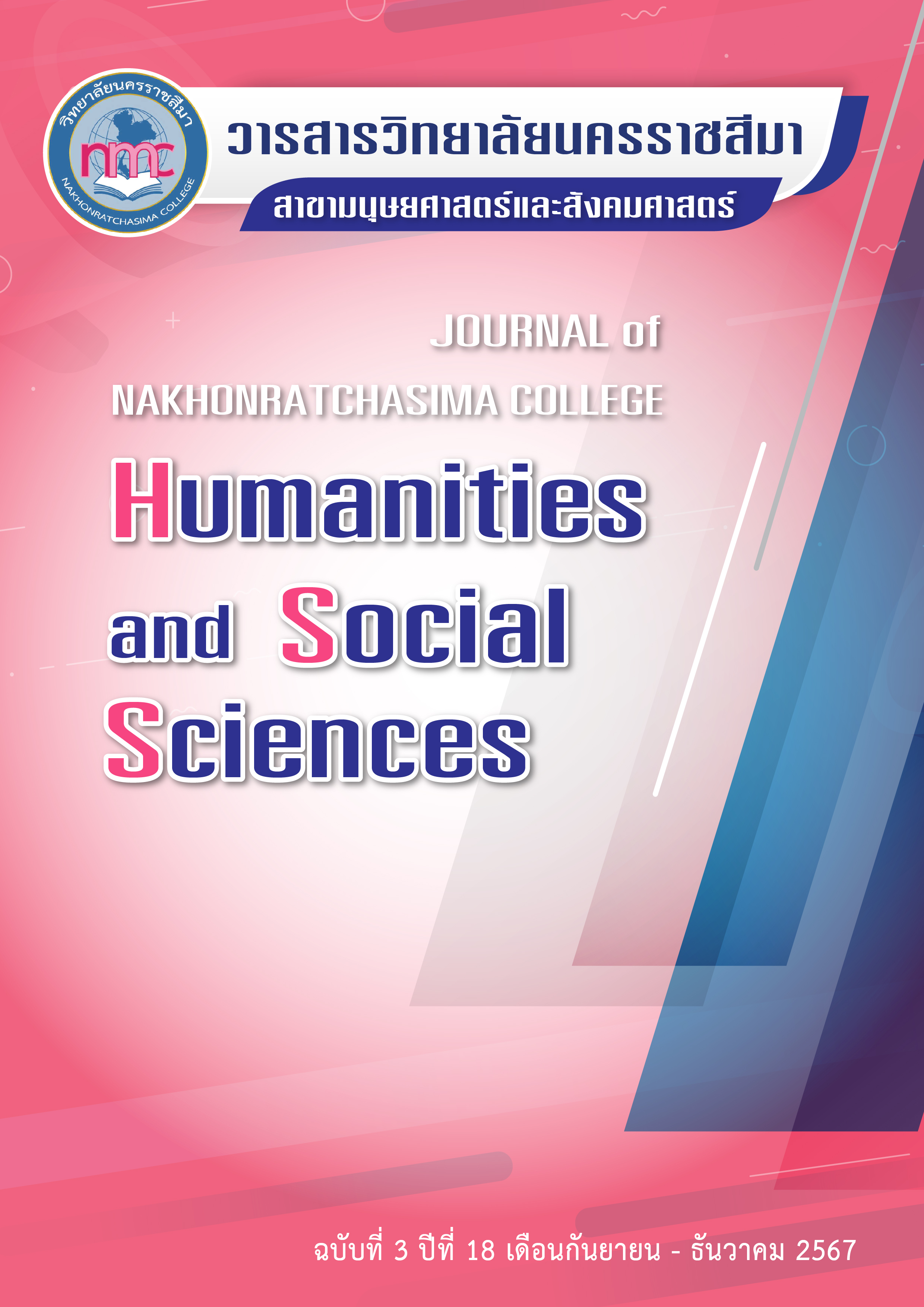Factors Influencing Intelligent Auditing and Audit Efficiency Among Accounting Auditors in China
คำสำคัญ:
Intelligent audit, Audit efficiency, Big dataบทคัดย่อ
Big data and intelligent audit were new products in the Internet era in recent years. Audit information system based on high-speed data processing emerged, and this was intelligent audit. Big data has been applied to all aspects of life, and intelligent audit based on big data has also developed rapidly in the audit industry. The objectives of this study were to find out the proper index which related to the intelligent audit, to verify the role of mediator and moderator variables between intelligent audit and audit efficiency, to put forward effective recommendations for improving audit efficiency with intelligent audit. Based on a thorough review of the literature, the paper identified two primary variables: intelligent audit and audit efficiency. Through qualitative analysis of depth interview and quantitative analysis of questionnaire survey. The influencing factors of intelligent audit on audit efficiency were divided into audit evidence, data storage, data analysis, system maintenance, enterprise management level and auditor’s competence. The results showed that data storage in the intelligent audit had a significant negative impact and data analysis had a significant positive impact on audit efficiency; audit evidence in the intelligent audit had not a significant impact and system maintenance had not a significant impact on audit efficiency, however, enterprise management level played a significant moderating role between system maintenance and audit efficiency, auditor’s competence played a moderating role between audit evidence and audit efficiency, thus, the audit efficiency was improved to some extent. The suggestion were improving the quality of auditors, strengthening the organization of audit work and coordinating well with the audited unit.
เอกสารอ้างอิง
AICPA: American Institute of Certified Public Accountants. (2014). AU Section 508: Reports on Audited Financial Statements. AICPA, 2014 (01).
Bazeley, P. (2019). Qualitative Data Analysis: Practical Strategies. New York: Sage Publications.
Hayes, A. (2013). Introduction to mediation, moderation, and conditional process analysis. Journal of Educational Measurement, 51(3), 335-337.
Hayes, A. F. (2018). Introduction to Mediation, Moderation, and Conditional Process Analysis: A Regression-Based Approach (Methodology in the Social Sciences) (2nd ed.).New York: The Guilford Press.
James, R.B. (1958). Automation and management. Boston: Division of Research, Graduate School of Business Administration, Harvard University.
Laurel, E.G. (2016). Risk Management Unveiling and Taming Danger: Exploratory Search Embedded in Legitimating Routines. MIT Sloan School of Management, 2016 (01).
Xu, H.Y., & Wang, L.L. (2020). The essence of intelligent audit. Business Accounting, 2020(23):4-8.
Xu, H.Y., & Zhou, Y.Q., & Zhao, J. (2022). Research on the efficiency of remote auditing based on customer information level. Finance and Accounting Communication, 2022 (07):111-118.
Yang, D.G., & Chen, B., & Chen, H.W. (2022). Intelligent audit research: theoretical frontier, practical progress and basic conclusion. Finance and Accounting Monthly, 2022(11):15-31.
Zheng, S.Q. (2021). The impact of big data on audit evidence collection: A theoretical framework. Finance and Accounting Communications, 2021 (05) : 03-07.
ดาวน์โหลด
เผยแพร่แล้ว
รูปแบบการอ้างอิง
ฉบับ
ประเภทบทความ
สัญญาอนุญาต
จรรยาบรรณผู้เขียนบทความ
ผู้เขียนบทความต้องรับรองว่าบทความนี้ไม่เคยตีพิมพ์ในวารสารใดหรือสิ่งพิมพ์อื่นๆ มาก่อน ต้องไม่คัดลอกผลงานผู้อื่นมาปรับแต่งเป็นบทความของตน และไม่ได้อยู่ระหว่างการเสนอเพื่อพิจารณาตีพิมพ์ อีกทั้งยอมรับหลักเกณฑ์การพิจารณาและการตรวจแก้ไขบทความต้นฉบับโดยกองบรรณาธิการวารสารวิทยาลัยนครราชสีมา สาขามนุษยศาสตร์และสังคมศาสตร์
บทความทุกเรื่องได้รับการตรวจพิจารณาทางวิชาการโดยผู้ทรงคุณวุฒิที่มีประสบการณ์และมีความเชี่ยวชาญตรงตามสาขาของบทความ ซึ่งผู้เขียนต้องแก้ไขตามคำแนะนำของผู้ทรงคุณวุฒิภายในระยะเวลาที่กำหนด หากไม่เป็นไปตามกำหนดกองบรรณาธิการขอสงวนสิทธิ์และยกเลิกการตีพิมพ์โดยจะแจ้งให้ทราบต่อไป
ข้อความที่ปรากฏในบทความของวารสารนี้เป็นความคิดเห็นของผู้เขียนซึ่งไม่เกี่ยวข้องกับวิทยาลัยนครราชสีมาแต่อย่างใด และกองบรรณาธิการขอสงวนสิทธิ์ในการพิจารณาและตรวจประเมินบทความเพื่อตีพิมพ์ในวารสารของวิทยาลัยนครราชสีมา สาขามนุษยศาสตร์และสังคมศาสตร์



